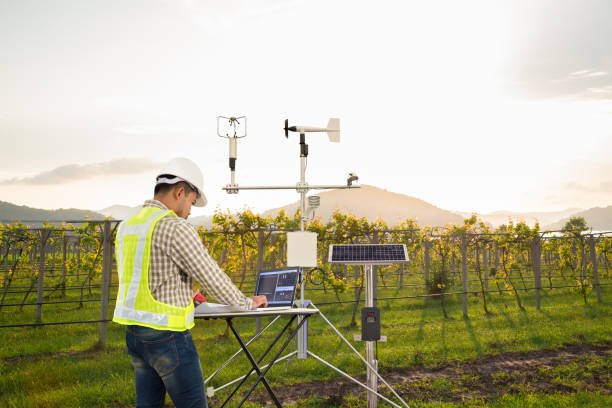Research Topics Related to Climate Technology
Climate technology (also known as climate tech) refers to the innovative use of science, engineering, and digital tools to combat climate change, reduce greenhouse gas emissions, and promote environmental sustainability. With the increasing global attention toward decarbonization and sustainable development, climate technology research has become a major area of focus for students, policymakers, and entrepreneurs.
In this article, we’ll explore a wide range of research topics related to climate technology, categorized into various key areas such as renewable energy systems, carbon capture, sustainable agriculture, green transportation, and climate data analytics.
What Is Climate Technology?
Climate technology encompasses all technologies designed to address the causes and effects of climate change. These include:
- Renewable energy technologies like solar, wind, and bioenergy.
- Carbon capture, utilization, and storage (CCUS).
- Smart agriculture and water conservation systems.
- Waste-to-energy and recycling technologies.
- Climate data modeling and AI-powered environmental monitoring tools.
This field integrates principles from environmental science, engineering, information technology, and economics to build resilient, low-carbon systems.
List of Research Topics Related to Climate Technology
Below are categorized and well-structured research topic ideas you can explore for academic projects, theses, or professional research in climate technology.
1. Renewable Energy Innovations
- Development of next-generation solar photovoltaic materials for improved efficiency.
- Comparative analysis of offshore and onshore wind energy technologies.
- Role of hybrid renewable systems in rural electrification.
- Techno-economic feasibility of hydrogen energy storage systems.
- Artificial intelligence in optimizing renewable energy production.
2. Carbon Capture, Storage, and Utilization (CCUS)
- Evaluation of novel adsorbents for CO₂ capture from industrial emissions.
- Life-cycle assessment of carbon capture and utilization technologies.
- Integration of CCUS in cement and steel industries.
- Direct air capture (DAC) and its scalability challenges.
- Policy frameworks supporting global carbon removal markets.
3. Smart Agriculture and Food Systems
- Role of precision agriculture in reducing carbon footprints.
- IoT-based monitoring systems for sustainable irrigation management.
- Climate-smart farming techniques for drought-prone regions.
- Impact of vertical farming technologies on food security.
- Use of AI and sensors in crop yield prediction under changing climates.
4. Climate Data, AI, and Digital Modeling
- Machine learning algorithms for predicting extreme weather patterns.
- Role of big data in improving climate risk assessments.
- Satellite-based technologies for monitoring deforestation and desertification.
- Blockchain technology in carbon credit trading systems.
- Cloud computing for global climate data sharing and visualization.
5. Sustainable Transportation and Mobility
- The future of electric vehicle (EV) battery recycling technologies.
- Transitioning aviation toward low-carbon biofuels.
- Impact of autonomous vehicles on greenhouse gas reduction.
- Smart city transportation systems and carbon neutrality goals.
- Hydrogen fuel cells: prospects and policy challenges.
6. Waste-to-Energy and Circular Economy
- Conversion of plastic waste into sustainable fuels.
- The role of anaerobic digestion in urban waste management.
- Circular economy approaches for industrial waste reduction.
- Technological innovations in e-waste recycling.
- Integration of waste-to-energy systems in smart cities.
7. Climate Finance and Policy Technology
- Role of digital tools in tracking climate finance flow.
- Fintech innovations for sustainable investment portfolios.
- Climate risk modeling in insurance and financial systems.
- Technology-driven transparency in carbon offset projects.
- Government incentives and private sector participation in green tech adoption.
8. Emerging Technologies in Climate Adaptation
- Geoengineering as a tool for global temperature control.
- Climate-resilient urban design and infrastructure.
- Development of bio-based materials for construction.
- Use of nanotechnology in environmental cleanup.
- Early warning systems powered by IoT for climate disaster prevention.
Importance of Research in Climate Technology
Research in climate technology is essential for:
- Reducing greenhouse gas emissions through innovative energy solutions.
- Enhancing climate resilience in agriculture, infrastructure, and ecosystems.
- Supporting sustainable economic growth through green innovation.
- Guiding policy decisions with evidence-based technological insights.
Such studies also create opportunities for startups, investors, and engineers to collaborate toward a sustainable and carbon-neutral future.
Conclusion
Climate technology research is one of the most impactful areas of modern science, bridging the gap between innovation and sustainability. From renewable energy to data-driven climate analytics, these research topics empower scholars to develop practical, scalable solutions for a greener planet. As the world transitions toward net-zero emissions, researchers in this field play a vital role in shaping a sustainable future.
FAQs
1. What is the main goal of climate technology research?
The primary goal is to develop and implement technologies that reduce greenhouse gas emissions, improve climate resilience, and promote environmental sustainability.
2. How can students choose a good research topic in climate technology?
Students should focus on areas that align with their academic background, available resources, and global climate priorities such as renewable energy, carbon capture, or sustainable transportation.
3. What industries are most impacted by climate technology?
Industries like energy, transportation, agriculture, construction, and finance are all being reshaped by climate-focused innovations.
4. Are climate technology careers in demand?
Yes, careers in renewable energy, carbon management, climate data science, and green finance are rapidly expanding worldwide.
5. What are some tools used in climate technology research?
Tools include GIS software, satellite imagery, machine learning algorithms, IoT sensors, and climate modeling platforms.
ALSO READ: Research Topics Related to Strategic Management







One Comment